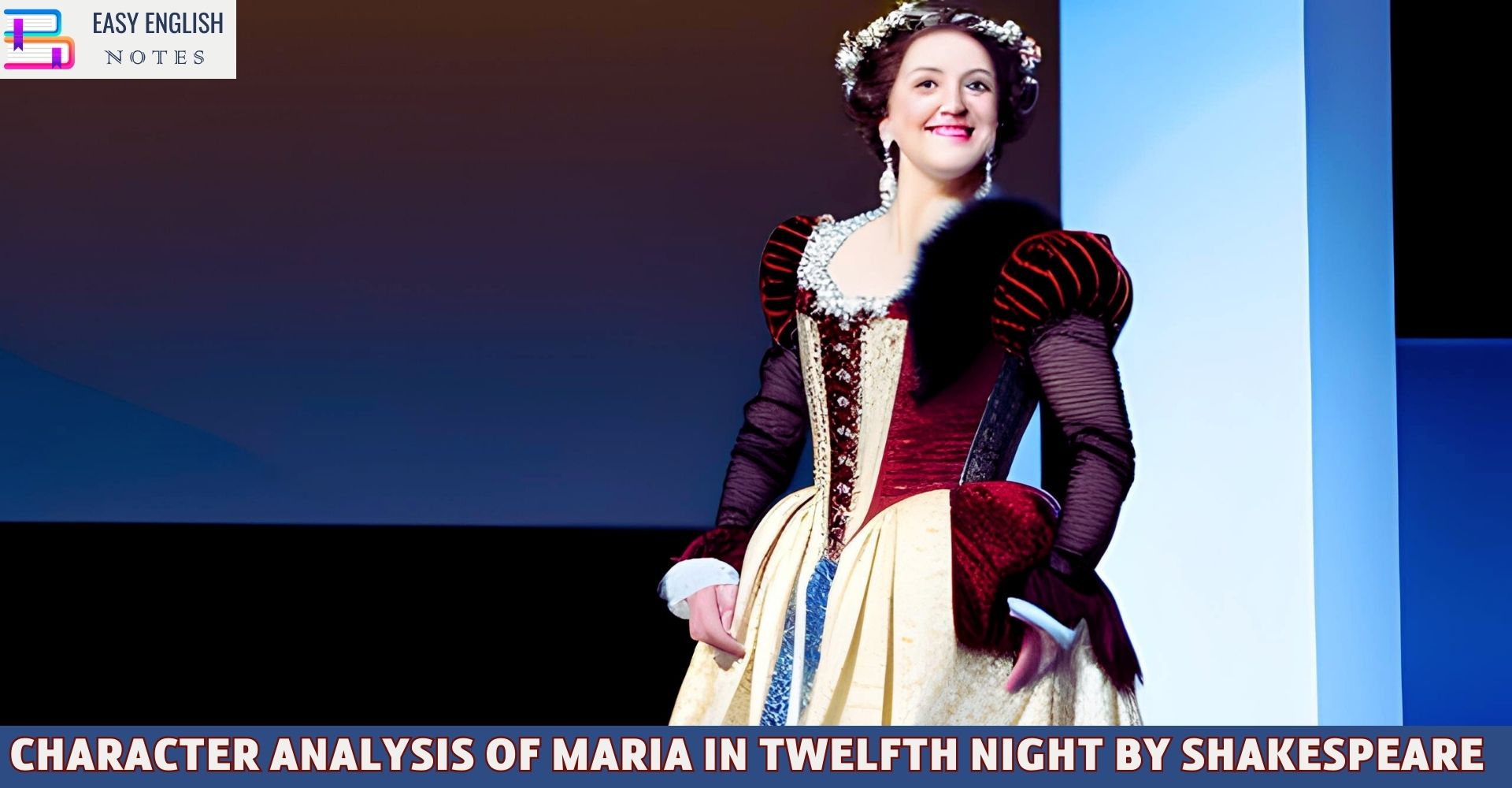To think of Maria is to immediately think of Malvolio, because it is as her foe that she is most evident in the play. The plot of the gulling of Malvolio is originated by her. It is she who carries it out to its finality. When the plot reaches its finality, Maria passes out of the play..
As the maid of Countess Olivia, this small in stature woman, is the spirit of mischief personified. She gets enormous pleasure in life when others are in discomfort. It is this trait in her that seeks to expose the vain, the ridiculous, and the flawed. Apart from being the plotter and the organiser in the gulling of Malvolio, she also reveals the stupidity of Sir Andrew, and manages to inspire Sir Toby and Feste into activity. She has a wit which tilts towards malice, as is evident in her scheming against Malvolio. Since her wit is malicious it is obvious that it attacks its primary enemy – sanctified dullness. She adds the comedy of intrigue in the play. Shakespeare drew her character in such a manner that intrigue was necessary to bring it out in its entirety.
As is his wont, Shakespeare makes it abundantly clear that Maria is small built. Viola ironically calls her Olivia’s “giant”. She is a “little villain” to Sir Toby as well as “the youngest wren of nine.” Hazlitt Writes about her thus: “We have a sneaking kindness for Maria and her rogueries. She fits in with Sir Toby Belch’s view of the world, and it is true that this ‘youngest wren of nine and ‘as pretty a piece of Eve’s flesh as any in Illyria’ later married him. They are both opposed to Malvolio, because they represent the ‘cakes and ale’ of which, because he was a virtuous puritan. Malvolio so disapproved.”
Also Read :
- Compare Hamlet with Macbeth, Othello and other Tragedies
- “The Pardoner’s Tale” is the finest tale of Chaucer
- Prologue to Canterbury Tales – (Short Ques & Ans)
- Confessional Poetry – Definition & meaning
- Line By Line Explanation Of The Poem The Eve of St. Agnes
Maria’s insight into character is exquisitely precise. She also has an equally wonderful sharpness with words. She sees in Malvolio’s character flaws which are hidden from others, barring perhaps the Clown. In her forget letter of Olivia, she is thus able to exploit these flaws and commit him to behave in the precise manner in which he ought to if all his flaws are on display to the maximum. When Malvolio comes in Olivia’s presence cross gartered, wearing yellow stockings and a perpetual smile, her question “Why appear you?, lead him to cut the most ridiculous figure.”
Apart from her sharp insight, she is clever as well. She adapts herself as per the company she is in. She is merry with Sir Toby and his friends, but demure in front of Olivia. She is ambitious too, and we are in no doubt that she wants to marry Sir Andrew for his social status and rank. Her design to achieve it is no secret. The Clown jokingly conveys this to us in Act I Scene 1, line 29, and Sir Toby is aware that Maria is “a beagle true bred, and one that adores me: what’s that?” Sir Toby may sound complacent of her adoration, but this changes to the much desired result that Maria wants once she succeeds in bringing about ridicule to Malvolio. Sir Toby hates Malvolio, and when Maria manages to succeed in her plot against him in its entirety, Sir Toby. marries her “in recompense” for her cleverness and effort. Sir Toby had already proclaimed after reading the letter written by Maria that he “could marry this wench for this device.”
Her delight in befooling others is an extension of her ready wit and her intelligence. If we remember her for the gulling of Malvolio alone it is because she succeeds so well in achieving it, and because it is so delightfully comical. But she attempts her wit on others too. She confounds Sir Andrew and makes him appear so ridiculous.
She tries her befooling even on the Clown, but fails, for the Clown is more than her match. She also fails with Viola, but nonetheless gives her utmost to befool her. Her “sport royal”, however, fully succeeds only against Malvolio, who she dogs “like his murderer”, and does not give him a moment’s respite.
Cowden Clark comments about her thus: “Her fun is nearly masculine; and yet her gaiety is of the most inspiring kind; but still perfectly feminine; so impulsive, so breathlessly eager, so unmisgiving! No one escapes her, not one, even of her hoax- fellows.”
PLEASE HELP ME TO REACH 1000 SUBSCRIBER ON MY COOKING YT CHANNEL (CLICK HERE)











